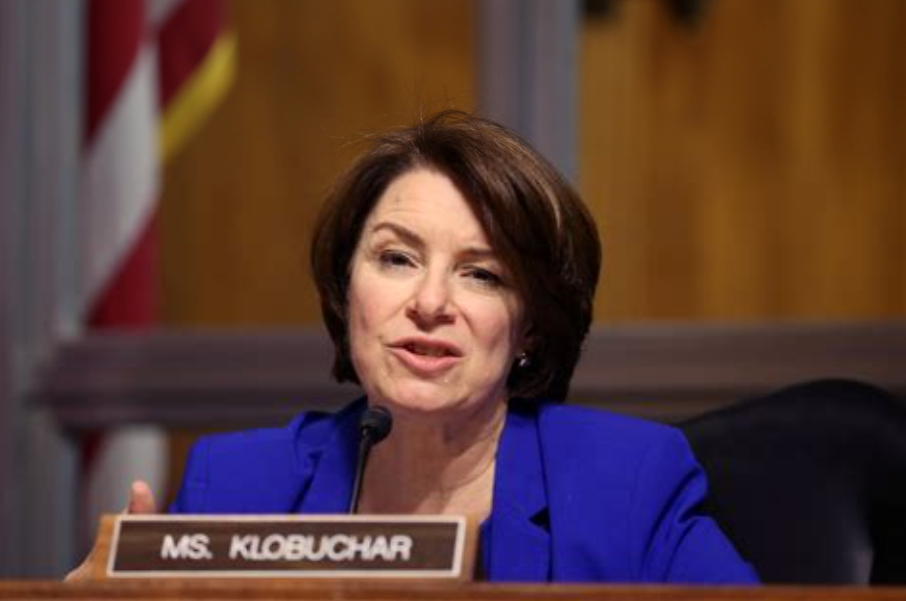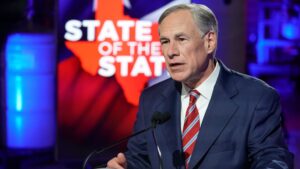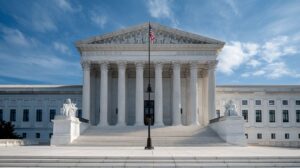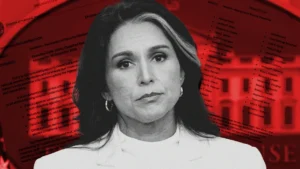Klobuchar Sounds Alarm on Constitutional Crisis as Trump Sparks Legal Firestorm — this warning by Senator Amy Klobuchar is shaking political circles across the USA. With immigration-related legal defiance escalating and Supreme Court dissent surfacing, America may be facing one of the most critical threats to its constitutional integrity in modern times.
What Did Senator Klobuchar Actually Say?
Understanding Klobuchar’s Constitutional Crisis Warning
Senator Amy Klobuchar appeared on CNN’s State of the Union, where she emphasized that America is approaching a full-blown constitutional crisis due to the Trump administration’s disregard for judicial rulings.
She specifically referred to the illegal deportation of Kilmar Ábrego García, a Maryland man removed from the country despite a federal court order explicitly blocking his deportation.
“We’re getting closer and closer to a constitutional crisis,” Klobuchar warned, pointing to how deeply the integrity of legal institutions is being challenged.
Why Kilmar Ábrego García’s Case Matters
How One Deportation Sparked a National Debate on Law and Power
This case is not just about immigration; it’s about what happens when the executive branch ignores the judicial branch. Federal judges had ruled that Kilmar Ábrego García should remain in the U.S., yet immigration authorities deported him anyway. This kind of action poses serious questions:
| Issue | Why It’s a Constitutional Problem |
|---|---|
| Ignoring Court Order | Violates separation of powers |
| Deportation After Ruling | Undermines public trust in justice |
| No Executive Accountability | Threatens balance in governance |
The fear is that if agencies begin ignoring the courts, the Constitution’s core principle — checks and balances — may no longer function.
Justice Samuel Alito’s Dissent Adds Fuel to the Fire
Supreme Court’s Role and the Dissent That Divided Judges
The U.S. Supreme Court recently intervened to temporarily block further deportations under the 1798 Alien Enemies Act, especially related to Venezuelan migrants. But the Court was not unified.
Justice Samuel Alito wrote a fiery dissent, calling the majority’s decision “an act of judicial overreach” that lacked procedural justification.
This signals deep concern within the judiciary itself. When Supreme Court justices disagree about the limits of judicial power, the nation enters dangerous constitutional territory.
Legal Experts Agree: We’re Nearing a Tipping Point
How U.S. Legal Scholars Are Framing This Crisis
Multiple legal scholars have backed Klobuchar’s view. According to constitutional law experts from Harvard and Georgetown, repeated disobedience of court rulings sets a dangerous precedent. It encourages agencies to act above the law and erodes the authority of federal courts.
According to The Guardian, this may be one of the clearest modern-day cases of constitutional confrontation.
Even Senator Chris Van Hollen said, “This is a moment of constitutional crisis — not just politics, but the law itself is under fire.”
Breakdown of What’s at Risk
Comparing Normal Governance vs. What’s Happening Now
| Component of Government | Expected Role | What’s Happening Now |
|---|---|---|
| Executive Branch | Enforces court decisions | Ignoring federal court rulings |
| Judicial Branch | Interprets laws & blocks unconstitutional actions | Being bypassed or disobeyed |
| Public Trust | Confidence in rule of law | Declining sharply |
| Legislative Oversight | Checks executive overreach | Politically gridlocked |
Why This Constitutional Conflict Should Concern Every American
It’s Not About Politics — It’s About Power, Precedent, and the Future
This growing tension is a clear red flag for constitutional integrity. If ignored, these events could normalize executive disregard for court decisions — meaning future presidents, regardless of party, could bypass legal limits without consequences.
Consider these facts:
- In a 2024 Pew Research poll, only 41% of Americans believed the executive branch respects court decisions.
- That number has dropped 8% in 2025 following recent deportation controversies.
- Over 73% of respondents agree that the U.S. government must maintain “strong separation of powers.”
This isn’t just a political talking point. It’s a governance alarm bell.
What Comes Next? America at a Legal Crossroads
Could This Lead to More Aggressive Executive Power Nationwide?
If the precedent continues unchecked, experts warn that future administrations — of any political leaning — may take unilateral actions, including:
- Bypassing court rulings on civil rights
- Declaring national security excuses to overrule the judiciary
- Expanding use of historical wartime powers (like the 1798 Alien Enemies Act)
These actions may cause deeper erosion of democratic norms and public trust — the two pillars of U.S. constitutional health.
Final Thoughts: Why the USA Must Watch This Moment Closely
Senator Klobuchar’s warning is not just symbolic. It reflects a growing sense that the executive branch is tipping the balance of power, and unless challenged, this could become a defining threat to American democracy in the 21st century.
This isn’t just about immigration or one presidency. It’s about whether the Constitution still holds its power when tested.
[USnewsSphere.com / TG]





